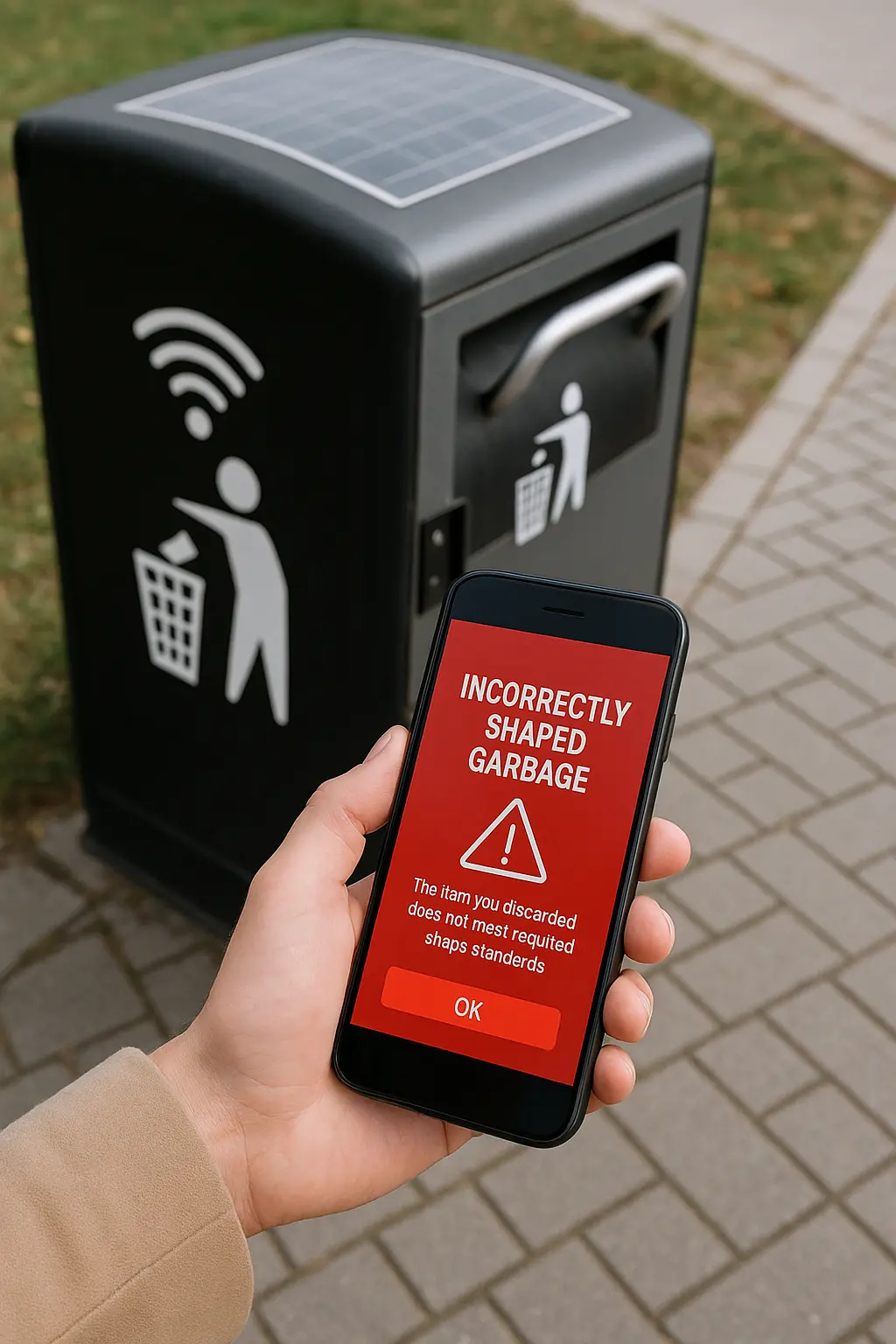In its latest bid to revolutionize everyday life through algorithms, the city of Glendale has rolled out Wi-Fi-enabled trash cans that now issue smartphone alerts whenever residents attempt to dispose of “incorrectly shaped” garbage.
The $4.2 million pilot program uses cameras and AI to review every item before it drops into the bin. Fail to meet its exacting geometric standards—a bottle insufficiently flattened, a pizza box crookedly folded—and the trash can simply refuses to open, instead gifting you a bold red push notification explaining just how wrong your folding skills really are.
“This is a major step forward in instilling geometric accountability,” declared Sanitation Commissioner Harold Benton, touting statistics that show a 73% boost in garbage shaped like tidy parallelograms.
Local residents are less impressed. One office worker was locked in a humiliating standoff with her bin after failing to crease her sandwich wrapper into an isosceles triangle, only to be redirected to a tutorial on “optimal crumpling practices.”
The system, designed by startup BinForm™, also includes Shape Score® ratings and a competitive leaderboard ranking households by the mathematical purity of their discards. CEO Kyle Dempsey insists that “every perfectly folded carton is literally shaping a greener tomorrow,” a pun he repeated with great satisfaction.
Not everyone is amused. Some critics argue the new rules unfairly harm those who lack origami training, while others note troubling cases such as a banana peel refused outright for its natural curvature. Witnesses report the can demanded it be “straightened to regulatory dimensions” before disposal.
City officials remain steadfast, hinting that future noncompliance could lead to escalating punishments, from garbage suspensions to mandatory online shape-correctness counseling.
When asked what should be done with the endless push notifications produced by the system itself, officials offered a chillingly bureaucratic reminder: “Digital alerts cannot be thrown away.”

